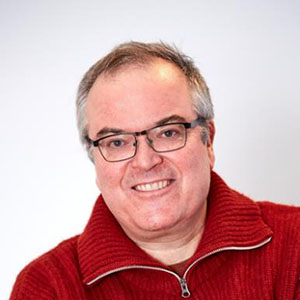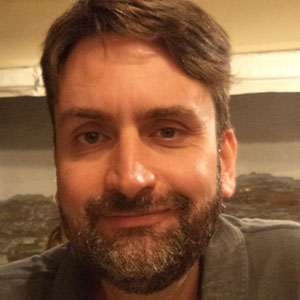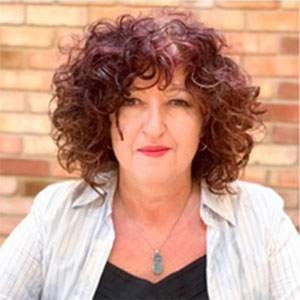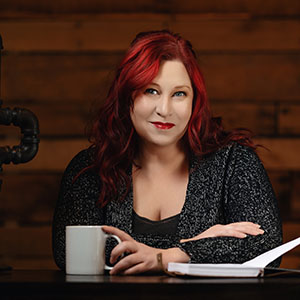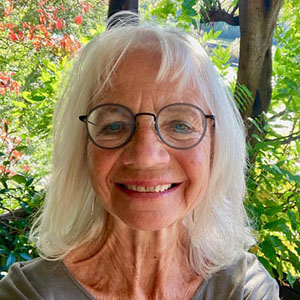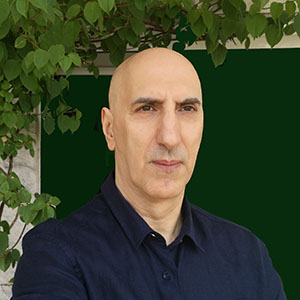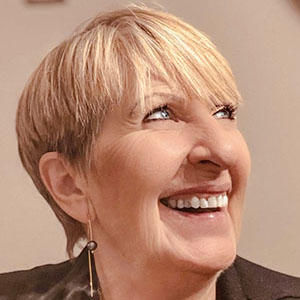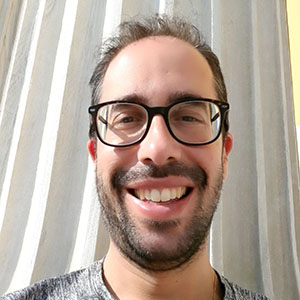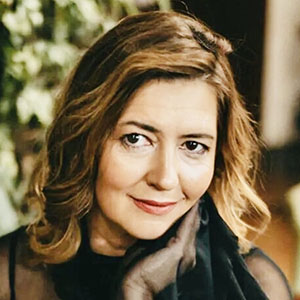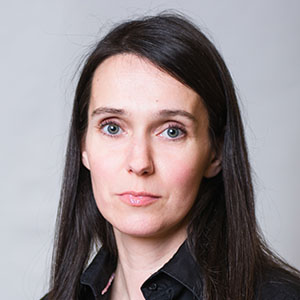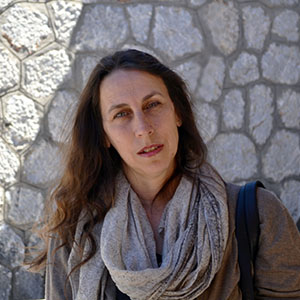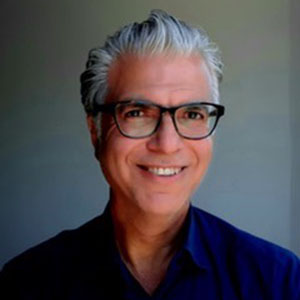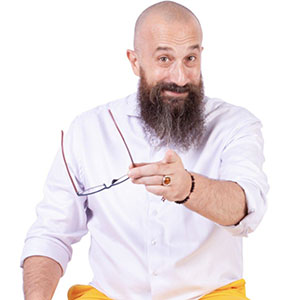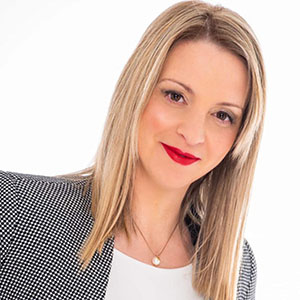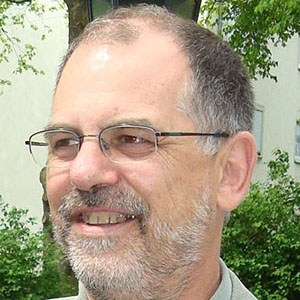Workshops |
Meet the workshops’ facilitators
(The facilitators here are presented in random order, in order which changes every time you visit this webpage.)
For each facilitator you can read their short CV as well as their workshop title and abstract.
Just scroll down this page to find the workshops presented by title in the form of a list.
Workshops by title
| Title: Collective trauma in the therapeutic room |
| Facilitators: Patrick Akrivos, Maria Skordou |
Life is hard, it is full of unforeseen circumstances and events beyond control and foresight. Every generation has witnessed catastrophes, is it the flooding of the Doggerlands, the eruption of Vesuvius, a World War, Refugee, Global Financial crises, Covid Lockdowns, to mention just a few. Every generation has managed to cope with it, be it by developing resilience, be it through various forms of disassociation or even creative adaptation.
With the latest events, from war on terrorism, financial crises, lockdowns and local catastrophes psychotherapists are called to help and support clients, while they themselves are dealing with the very same events. How do psychotherapist deal with this? What tools for self-care do they use? What is the function of a possible supportive network?
In this workshop we will explore the therapist own intergenerational stories of Trauma, how they have learned to cope with it, explicitly and/or implicitly, and how these coping mechanisms are effective or not for the current events. Further, the workshop will investigate how the therapist, can through their own experience of the same traumatic field with their client, be a source of help and inspiration, in the therapeutic process.
Short CVs
Mag. Patrick Akrivos
Patrick Akrivos is an Austrian-Greek licensed psychotherapist registered with the Federal Ministry of Health of Austria (BMSGPK). He works in Athens, Greece and Vienna Austria. He holds a postgraduate degree from Middlesex University, a postgraduate diploma in the Person-Centered Approach from the University of Strathclyde and has completed his training in Person Centered Psychotherapy at the FORUM in Vienna, Austria. He is also a certified Gordon Trainer (Parent, Teacher, Youth and Leader Training), he is a certified S.A.F.E. trainer (Secure Attachment Training) as well as a Positive Discipline Instructor. He has completed trainings in Emotional Focused Couples Therapy, Addictions, Trauma therapy and others. Patrick Akrivos has many years of experience in the education of parents and teachers as well as consulting and educating staff and employees in Greek and International companies as well as educational institutions. Patrick Akrivos has a significant number of publications and conference presentations and is continuing to deepen his understanding of psychotherapy with additional training.M.Ed. Maria Skordou
Maria Skordou holds a Bachelor’s in psychology from the American College of Greece (Deree) and of the Panteion University of Athens Greece and also a Master in Psychology of Education in Bristol University in England. She has completed her training in Gestalt psychotherapy in Gestalt foundation in Athens Greece. She is also certified Gordon’s Trainer for Parents and Teachers. She has completed trainings in Emotional Focused Therapy for Couples, in EMDR trauma therapy and in Comprehensive Resources Model (CRM, Basic and Advanced) by Liza Schwarz and in different therapiy approaches for people with ASD. She has many years of experience working in different setting with ASD kids, adolescents and adults. She is a member of Association of Greek Psychologists and of EMDR- Hellas The last 15 years she is working in private practice with different populations in individual and group therapy.
| Title: The polyphony of Emotion-Focused Therapy practice (new) |
| Facilitator: Niels Bagge |
Emotion-Focused Therapy (EFT) is part of the PCE-therapy tribes as a humanistic integrative psychotherapy with roots in the person-centered approach and integrating experiential practices in a client responsive moment to moment process of facilitating emotional change. It is founded both in a psychotherapy research tradition through 40 years, and in everyday clinical practice of psychotherapy. Polyphony is derived from the Greek word for “may sounds”. In music polyphony means the simultaneous combination of two or more tones or melodic lines (www.britannica.com). In this workshop we will explore the many layers of relating, assessing, facilitating and formulating that constitutes the polyphony of Emotion-Focused Therapy practice. The EFT therapist is engaging in many simultaneous processes that come together in one polyphonic expression with the client. One set of layers are the principles of relating and therapeutic tasks, or “following and guiding”. Another is the EFT compass’s: Emotional assessment, change principles, case-formulation and task markers of problems. The workshop format will contain short presentations, demonstrations, experiential exercises and discussion in the group. The participants are invited to explore experiential more and more layers of the polyphony of EFT practice in exercises with therapist and client roles. We end with an open discussion of the experiences and the questions: Is practising polyphony possible? Or are we talking about sequences of monophony of relating, assessing, formulating and facilitating? Or maybe homophony “chords” of layers of practice.
Short CV
Niels Bagge, cand. psych. University of Copenhagen, authorized psychologist, specialist and supervisor of psychotherapy. Emotion Focused Therapy (EFT) facilitator, supervisor and trainer, Focusing Trainer, mindfulness meditation teacher (MMTCP), Holotropic Breathwork Facilitator. Head of Institute for Emotion Focused Therapy Denmark & private practice in Roskilde, Denmark. Chair of Danish Society for Person-Centered and Experiential Psychotherapy.
| Title: The polyphony in psychotherapeutical methods: on the way of finding consonancy |
| Facilitator: Olívia Fekete |
Empathy, unconditional positive regard and congruence, the person-centered method’s specific therapeutical variables, are considered in other psychotherapeutical approaches as non-specific characteristics of the therapist that have essential functions: to build rapport, to found and maintain therapeutical allience as well as to catalyse method specific intervention or to enhance their efficiency.
In the clinical setting, when conceptualizing a psychotherapeutical diagnosis, making decision on method indications, finally concretizing method choice and therapy planning, the therapist faces method combination dilemmas. Even after starting off a plan, the necessity of method change, or change of the combination can raise, due to the patients’ state or patients’ unfavorable reaction to applied therapeutical intervention.
The workshop is adressing the fundamental questions of humanistic psychotherapy’s combination with other methods. Different pathways of methodological polyphony are dressed and the polyphonies’ advantages and the difficulties are discussed, pointing on challenging clinical situations such as crisis states, auto- and heteroagression, frame violations and the general difficulties of directivity and structure in integrated method settings.
4 polyphony pathway categories will be adressed, two in settings where person-centered therapeutic variables are specific, and two in settings where person-centered therapeutic variable are non-specific.
By reflecting on dilemmas from their own practice, the workshop participants can make conscious the features of their current method combination practice, pinpoint on their development potential in method integration, increase their knowledge and flexibility in terms of applying person-centered values in specific and non-specific conditions.
The workshop takeaway is a personal growth in mastering a sound polyphony of methods where the person-centered voice is providing the base.
The workshop is preferably recommended for participants who are working with clinical patient population.
Short CV
Dr Fekete Olívia, PhD in Psychology Sciences, clinical psychologist specialist with over 20 years of experience in clinical field, both public and private healthcare systems, inpatient and outpatient settings.
Person-centered therapist, trained in and works with cognitive-behavior method, in EMDR and in hypnosis (Hypnotherapist candidate, EMDR therapist candidate).
In applied field she works in private practice in ambulatory health care, activity focus is on psychodiagnostics and psychotherapy for patients with clinical and non-clinical issues.
In education she works as lecturer at Semmelweis University of Medicine and Health Sciences (Budapest, Hungary), in the postgraduate Clinical psychologist specialization, teaching general psychodiagnostics and cognitive-behavioral diagnostics and therapy, and lecturer at ELTE (Budapest, Hungary) clinical psychologist MA specialisation, teaching person-centered method and skills in seminars.
In regards of scientific activity, she is currently engaged in clinical, method specific diagnostical and evaluative interview techniques development, and resource-based approaches.
| Title: Polyphony, cacophony and euphony in a changing world… |
| Facilitator: Patricia Foster |
I wish to present a Focusing workshop, where we will briefly explore experientially some of Eugene Gendlin’s Focusing steps, in order to find “that Small Still Voice” (Gendlin 1970) that we all hold within… “The Small Still Voice” which ultimately carries us forward in the right direction to change.
Let us begin by examining what we mean when we say “Welcoming polyphony in a changing world”. The dictionary meaning of Polyphony is the style of simultaneously combining a number of parts, each forming an individual melody and harmonizing with each other. However, Polyphony may also be interpreted as “many voices” (“πολλές φωνή”). Something we all experience daily, the many voices within our societies, our cultures, our organizations, our families, others, as well as our inner voices…
Polyphony, which experientially includes listening and saying interactively both internally and externally, more often than not, leads not to a harmonious melody, but to a Cacophony (Κακοφωνη), literally translated as bad voices, the dictionary meaning of Cacophony is a” harsh or jarring sound , dissonance sense , an incongruous or chaotic mixture “.
For me the inevitable question is; How do we find Ευφωνη, meaning “sweet-voiced” which comes from ευ+φωνη, which was formed by combining the prefix eu- (pronounced ef) (“good”) and phōnē (“voice”). The dictionary meaning of “Euphony“ is the effect of sounds being perceived as pleasant, rhythmical, lyrical, or harmonious.” As therapists we are all aware of the importance of this “sweet voice “, which contains within it the qualities of empathy, congruence and unconditional positive regard, all are necessary to tap into ”the edge of awareness” enabling each of us to discover “our small still voice” that will guide each of us to find our True North, the safe starting point of our internal compass that will guide and carry us forward in the right direction…
Short CV
I am a Certified European Person Centred Therapist, a Certified Focusing Oriented Therapist, and Trainer, and a Certifying Coordinator of The International Focusing Institute. My original background was in Finance and Shipping, but I am happily ensconced in teaching and training Focusing, Certified Focusing Professionals and Focusing-Oriented Therapists, between Greece and the U.K. My passions, apart from my two amazing daughters and gardening, is the continuous journeying into Thinking at the Edge, Philosophy of the Implicit, Somatic Trauma Therapy, and Polyvagal Theory, all of which I incorporate into all levels of my training programs. Especially as they are all so relevant to today’s ever-changing times. I am privileged to feel as if I belong simultaneously to two places, I call home, that is, Liverpool and Aegina. I believe that a good sense of humor is imperative to our therapeutic modes and wholeheartedly believe in “The Politics of Giving away Therapy” as stated by Gendlin.
| Title: From birdsong to J. S. Bach, from Japanese Renku poetry to D. Bohm`s dialogue – What we can learn while listening to many voices |
| Facilitator: Christiane Geiser |
Listening is not at all a passive activity. Real listening as transdisciplinary art, as craft, as skill is a radical way of being in contact to the world.
And what about responding to what we hear? Do we have an independent voice? Or do we follow the main voice? Or have we decided to stay silent?
Working in a person-centered and experiential field, we are accustomed to extending our listening and to helping our clients find his or her voice.
But what about dwelling in a world which is more and more overwhelming with a cacophony of voices that are often more noise than sound and do not find each other to form a soundscape, a dialogue, a togetherness in any way?
In this experiential workshop you will hear about and listen to examples of polyphony. While listening you will have a first inkling of HOW you normally listen.
Then you will have the opportunity to try out some versions of listening and talking in groups, using the principles of polyphonic composition to experience new ways to connect to yourself and others and the whole situation.
And maybe we can also find some inspiration as to how we could communicate better in the “changed world” we are inhabiting and forming at the same time?
Short CV
Christiane Geiser has lived and worked in Zurich and Solduno/Ticino as a psychotherapist and supervisor in private practice for 40 years. She is the former director of a post-graduate training-institute (person-centered, experiential, body-oriented) in Zurich, where she still teaches. She is also a Certifying Coordinator of the International Focusing Institute (TIFI). She writes articles about person-centered/ experiential psychotherapy and training. Together with Donata Schoeller she has translated Gendlin`s “A Process Model” into German.
My life has always been primarily informed by what I hear. Therefore, the Congress theme has inspired me to revisit some areas that I am passionate about. All of them have to do with hearing, with listening and especially with the subject of polyphony in various forms.
| Title: “As many realities as there are people”. Autopoiesis in Person Centered Therapy. |
| Facilitators: Maria Titova |
We work in rehabilitation clinic on a 6-week basis. In this period, we need to be able to deal with many realities effectively, non-directive and emphatically. In our workshop we would like to share what we have learned.
Experiential and process-oriented therapy combines client-centered attitudes with experiential, process-oriented methods and techniques. We adapt to the client’s feelings and experiences of who he or she is. The patient’s approach provides a “marker” that makes the experiential technique appropriate. In order to promote the process of self-awareness, autopoietic expressions of all kinds are helpful. With stones, slippers, fantasy you can get more clearly to ego states and feelings.
So-called reparenting belongs to ego-states intervention, helping to become a good parent to yourself, it plays an important and supporting role in our designed therapy processes. We will answer the questions:
What are my therapeutic facets in this process design?
How do I design these processes?
What is holding me back and how can I encourage it?
Which attitudes are familiar to me and flow in implicitly?
Which attitudes can still grow?
Which updating tendency would like to be promoted in me in order to be able to shape my therapeutic relationships even more congruently?
Through focusing, imagination and creative arts we design an open process of self-awareness and we can parent that in ourselves and make nourishing available to us.
Short CV
Maria Titova Mag pth
Maria Titova is a certified in Austria person-centred therapist and a certified sexual therapist. In addition to her psychotherapy certifications, she has a background in mathematics, management and psychology. She organized many psychological trainings, workshops and events in Austria, Ukraine and Russia. Since 2011 her primary focus has been on Psychotherapy at the Institute for Person Centered Studies and Sigmund Freud University. She has also pursued work with children and adolescents in psychosomatic day stations, acute psychiatry and addiction outpatient clinics. In 2016 she has opened a private practice in Vienna and since 2021 she is working on psychosocial rehabilitation at Lebens Resort Ottenschlag leading both individual and group therapy.
Mariia is also a passionate sportswoman, she skis and kitesurfs. This year she won the medical doctors and pharmacists World Cup in skiing slalom and giant slalom.
| Title: The synthesis of polyphony through creative writing |
| Facilitators: Katerina Powell, Kostas Mavrakakis, Agapitos Chrysochoos |
The aim of the workshop is for participants to experience polyphony from different perspectives: First, from the perspective of their own ‘inner’ world of thoughts and feelings or different configurations, by coming into contact with the ‘voice’ that seeks expression at that moment within themselves. Then from the perspective of the ‘outer’ world by experiencing the voice that arises from each individual participant of the workshop at that given moment creating the unique dynamic of that particular group. We will begin the workshop with a creative writing exercise that will be completed by each participant individually and will focus on the ‘here and now’ of each person. This will give the space to each participant to come into contact, express and give a ‘voice’ to an aspect of themselves through a creative means. For the second part of the workshop, we will carry out a creative writing exercise involving the whole group. This exercise will be based on what the participants have written in the first part of the workshop. This is an interactive exercise whereby the individual ‘voice’ of each participant will become a part of a collective ‘voice’. This will enable the participants to experience both the polyphony of the group’s different ‘voices’ and expressions, whilst at the same time experiencing the outcome that arises when their individual ‘voices’ are synthesized and combined with all the ‘voices’ of the group. The final part of the workshop will give space for group discussion so that the participants can share their experience and thoughts about the synthesis of polyphony that emerged from the two different creative writing exercises.
Short CV
Katerina Powell is a mental health counsellor following the person-centered approach and an EMDR practitioner. She holds a Pg. Diploma in Person-Centered Counselling studies from University of Strathclyde. She has also trained in Parent Effective Training (PET) – Gordon Hellas, Emotionally- Focused Therapy for Couples (EFT), Eye Movement Desensitization and Reprocessing (EMDR) – EMDR Hellas and Comprehensive Resource model (CRM) – EMDR Hellas. She has been working as a counsellor for over 10 years with adults individually and in groups both as a facilitator (Support groups for adults with ADHD) and as an instructor in the four-level seminar of Creative Writing and Self-Knowledge she has created and run with her colleague Kostas Mavrakakis since 2018. She is an active member of the Hellenic Association for Person-Centered and Experiential Approach (HAPCEA) and the Treasurer on the Board of Directors. She is also a member of PCE Europe and EMDR Hellas.
Kostas Mavrakakis is a mental health counsellor following the person-centred approach and an EMDR practitioner. He holds a Bachelor’s degree in Psychology from The Open University and a Master’s degree in Person-Centred Counselling from the University of Strathclyde. He also holds a Master’s degree in Cultural and Media Studies from The Open University. He has also trained in Emotionally Focused Therapy for Couples (EFT) and Eye Movement Desensitization and Reprocessing (EMDR) – EMDR Hellas.
He has been working as a counsellor for over 10 years with adults individually and in groups either as a facilitator (Support groups for adults with ADHD) or as an instructor in the four-level seminar of Creative Writing and Self-Knowledge he has run with his colleague Katerina Powell since 2018. He is an active member of the Hellenic Association for Person-Centred & Experiential Approach (HAPCEA) and serves as a member of its Continuing Education Committee.Agapitos Chrysochoos is a mental health counsellor following the person-centered approach. He holds a Pg. Diploma in Person-Centered Counselling from University of Strathclyde. He also holds a Master’s degree in Secure e-Commerce from Royal Holloway University of London and a Bachelor’s degree in Computer Science & Artificial Intelligence from University of Bedfordshire. He has been working as a counsellor for over 10 years with adults individually, adolescents and their families, and in groups as a facilitator (Support groups for adults with ADHD). He was also a research associate at the Adolescent Health Unit specializing in Internet addiction. He has also coordinated a team of psychotherapists and counsellors for providing psychological support to vulnerable social groups (NGO). He is an active member of the Hellenic Association for Person-Centered and Experiential Approach (HAPCEA), a member of the Continuing Education Committee and currently selected as the General Secretary on the Board of Directors.
| Title: Exploring person-centred creative arts therapies and its potential for promoting relational depth – an experiential workshop |
| Facilitator: Ani de la Prida |
Creativity is at the heart of the person-centred approach; therapy is a creative process and the actualising tendency is a creative motivational force that promotes psychological healing, change and growth. When the person-centred approach is integrated with creative materials and methods, it can become an incredibly powerful and transformational approach, one that promotes relational depth, psychological integration and a deep authentic connection.
Creative arts provide a route for the ‘inner’ voice of the client to be externalised in the ‘outer’ world. Multiple internal voices or perspectives can be expressed and co-exist in art form –making internal polyphony visual. The unconscious is made conscious through art. Traumatic experiences are often stored non-verbally as fragmented sensory, emotional, and visual elements, and using creative arts in therapy can help to access and process these experiences, even on a non-verbal level.
I see a hunger for creative work with clients. We are facing socio economic, political, pandemic and climate related challenges to our wellbeing, and perhaps need creative methods more now than ever. But until now creative arts therapies have not been considered a fully-fledged tribe of the person-centred nation, the approach is not widely understood, and person-centred therapists can feel unsure how to integrate creative materials into their practice.
In this workshop I will explore a person-centred approach to the therapeutic use of creative arts and how it can promote relational depth. I will discuss a person-centred view of the unconscious and its relevance to creative arts therapies. I will introduce a brief history of its development and key aspects. I will share case study material to illustrate, highlight the relevance of non-directivity and share some ideas and exercises you can safely use at any stage and level of experience.
This is an experiential workshop, and participants will be invited to engage with a simple experiential creative art exercise. Art materials will be provided.
Short CV
Ani de la Prida is a psychotherapist and creative arts counsellor who brings a creative, person-centred, pluralistic approach to her work. She is passionate about creative methods in therapy and has experience working with groups, adults, children, and young people in a wide range of settings. Ani founded the Association for Person Centred Creative Arts (APCCA) where she is course director. Ani has taught at various universities including Roehampton and the University of East London, where she did her masters research on the use of digital media in therapy. Published work includes; Person Centred Creative Arts Therapies in The Handbook of Person-Centred Psychotherapy and Counselling 3rd ed. (due 2023), Demedicalised counselling and psychotherapy with children and young people in People not pathology: freeing therapy from the medical model (2023) What Works in Counselling and Psychotherapy Relationships (BACP, 2020), and The Pluralistic Therapy Primer (2021).
| Title: Listen to the voices of your body |
| Facilitator: Wil Roes |
In this workshop we will discover in praxis how to be present and in contact with the client using physical contact or bodywork approach. Physical contact is another, powerful way to connect with the client and help them to discover their own path to growth.
Bodywork helps the therapist to focus more on the person and less on the narrative or symptoms of the client. The therapist is expected to only accompany the process growing in the client, creating a safe space for the client, sensing tentatively to what is happening here and now in them. Τhe client might be helped to listen to their own process and expression of their inner self, instead of translating their inner world to another person through mental effort.
After a short introduction about the process, the sense and the application of the bodywork approach, participants will exercise in pairs in new ways to be present to a client without words, only by physical presence and, if useful and accepted, by touch.
Short CV
Wil Roes. I got my PCA training in Germany and France. I have worked as a therapist, supervisor and trainer in France and Czechia. My interest in bodywork and Focusing brought me to develop my own approach of listening to clients through touch. All my approach is deeply embedded in PCA.
I am married and have 4 children and 3 grand-children.
| Title: Counseling for inner and outer peace: Polyphonic, slow listening in a polarized world |
| Facilitator: Holly Thompson |
All of life is music and it comes in many forms. We all have songs that we sing to ourselves and with others about who we are and aspire to be, as well as how others are in the world. The modern age is full of a diversity of types and styles of music. Some harmonic and soothing, other musical forms are loud, aggressive, and discordant. In the history of the West, attention has been given predominately to the songs for and about white, straight, Christian, cis-gendered, able-bodied, men. Music has been used to create political unity and consolidate power. In the United States music created by enslaved folks was used to provide support, encouragement, and empowerment through the atrocities of slavery, and the ongoing struggle for civil rights. While there are many musical genres, many do not get equal attention or respect.
Technology, social media, and modern life seemingly offers a lot of promise and space for the exploration of different ideas, yet increasingly people are living in echo chambers that exist in a monophonic simplicity and assert a kind of supremacy. Currently, in the U.S. and around the world, political polarization has been exacerbated by divergent ideas of power, freedom, infringement, and control. If we are to move into a polyphonic way of being together, it is necessary to find understanding of the historical contexts that are alive in present day. Implementing Roger’s core conditions and an existential-humanistic conceptual framework, the workshop will focus on relevant U.S. and global history to find empathy and understanding for those on the political left and political right. Further, we will engage in some experiential exercises that allow space for slowing and increasing attunement and awareness of ourselves in relationship with others. To create change in the world and heal the deep wounds that exist because of colonization, white supremacy, and slavery, it is imperative to assist ourselves and our clients to listen deeply and hold understanding and empathy. Together, we will explore therapeutic possibilities.
Short CV
Dr. Holly Thompson is an Associate Professor of Counseling at the University of Illinois Springfield, where she trains and supervises Master’s level counseling students. Holly coordinates the clinical mental health concentration and specializes in group work, multicultural counseling, and has a deep passion for social justice and advocacy work. In addition to teaching at university, Holly has a small psychotherapy practice and especially enjoys working with psychotherapists and other helping professionals who are disenfranchised with the current emphasis on conceptualizing and working from a positivitistic, medical model. Holly loves to travel and experience all things cultural.
| Title: The polyphonous paradox of incongruence and congruence in human selfhood |
| Facilitator: Devang Vaidya |
This workshop is based on a proposal that views Carl Rogers’ theory of incongruence and congruence as an existential paradox. Going beyond a conceptual analysis, the therapist hears this paradox as a polyphony of human selfhood, as a synthesis of the organism and the self-concept. A genuinely person-centred discourse is not simply a dialectical interaction but an embodied dialogue – an encounter – involving the affectivity of both persons. It is then that the self finds an optimum actualising direction, without being externally directed. The task remains unfinished since the imbalance – incongruence – is ontological; what Søren Kierkegaard refers to as ‘the thorn in the flesh’, a given of human existence. Hence, instead of viewing therapy as a mechanistic solution to problems having a beginning and an end, we remain patiently and faithfully attentive to the ongoing polyphonous middle – the ‘muddle’ – of human existence.
On this view, how should we understand the phrase ‘becoming oneself’? According to Aristotle’s principle of non-contradiction, it is not possible to be and not to be the same thing at once. Becoming implies a transition from one state to another, for example, from ice to water, from a caterpillar to a butterfly, from an infant to an adult. When it comes to human existence, this raises a Socratic question that scientific enquiry cannot answer: How can anyone become who one already is? So how can we take seriously the person-centred aim of congruence as becoming the self that one is? Here, Rogers’ self-proclaimed friend from Denmark, Kierkegaard comes to our rescue: ‘Becoming oneself’ implies another paradox: it includes both, change and continuity, movement and stability.
How do we experience our clients’ ‘becoming oneself’? What is our aim as person-centred therapists? What is its relevance to today’s world? We will workshop these questions in an experiential / reflective exercise based on a case study drawn from one of Kierkegaard’s lesser-known dramatic works, Repetition. We will conclude with an open reflection on how polyphony is a distinctive feature of person-centred dialogue.
Short CV
Devang Vaidya. I am a person-centered therapist in a London-based practice for over 20 years. I have taught and presented person-centered, psychoanalytic, existential, body-oriented, and critical psychopathology approaches for many years. I am currently working on a doctoral thesis for a Kierkegaardian reconstruction of person-centered theory as a distinctive form of existence-oriented therapy.
| Title: The fragmented world of trauma and its voices: Dissociation & integration |
| Facilitator: Emmanuel Vantarakis |
“Polemos (war in Greek) is the father of all”, Heraclitus.
Heidegger agreed with Heraclitus by stating that polemos “is the essence of being [as] it gives rise to entities and supports them in a meaningful world”. Da-sein is polemos.
Emmanuel Levinas, also influenced by Heraclitus, declared that “being reveals itself as war.” Polemos is the primordial element of being for facing the ‘Other’.
The origin of the word en-counter is derived from the Latin word contra (against). Accordingly, Peter Schmid has perceived the “en-counter with another person, first of all means, recognizing that the Other really stands opposite, because he or she is essentially different from me”.
“Polemos” and “contrariety” refer to the core of the problem of diversity, polyphony and trauma.
In this existential thrownness (polemos) into the ‘cosmos’ and against the Other, the ego or the structure of the self is always traumatized. Although trauma has a negative impact, it can provide the necessary condition of crack, for the transcendence of the solipsistic ego, leading to the open interaction with the other person.
The traumatic experience, however, in PTSD owing to the self-protective and defensive mechanism of dissociation, it cannot be processed on a physical and symbolic level and remains undigested and fragmented into the psychosomatic organism. Consequently, the vulnerable structure of the self is driven to disorganisation and collapse.
In this workshop, the nature of traumatic human experience is going to be discussed. It will be conveyed by myths, the focusing experiential approach, and the findings of modern neuroscience. Most particularly, we will focus to the how, as therapists, can we hospitalize and unfold, the non-symbolized experiences, that remain in the silence of preverbal experience, as well as to the aspects of the ego that do not have a ‘voice’ yet, as they are in the state of Speechless Terror.
Short CV
Emmanuel Vantarakis. M.Sc., Psychotherapist, Certifying Coordinator, International Focusing Institute (TIFI).
Heading the Traumatherapy Section at the Hellenic Focusing Center.
Supervisor and trainer in Focusing-Experiential Psychotherapy.
Founding member of the Hellenic Person-Centred and Experiential Society (HAPCEA).
Member of the Hellenic & European Society of Psychotherapy (ECP).
Apart his collaboration with the Hellenic Focusing Center he is working privately in Athens.

